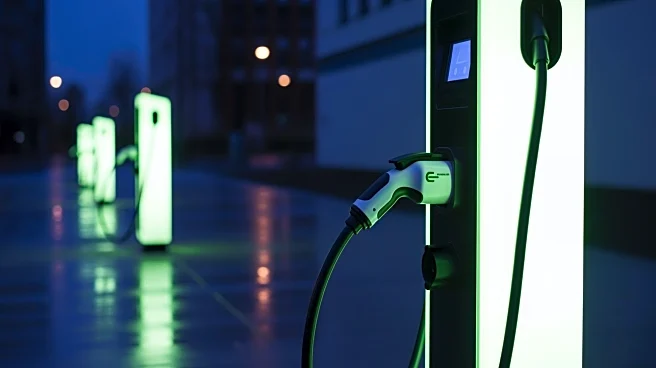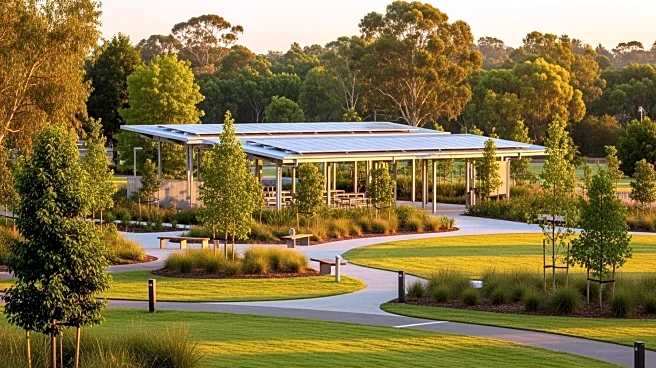What's Happening?
In October, electric vehicles (EVs) accounted for 33.3% of the auto market share in Germany, up from 23.6% year-on-year. Battery electric vehicle (BEV) volumes increased by 48%, while plug-in hybrid electric vehicles (PHEVs) rose by 60%. The Skoda Elroq
emerged as the best-selling BEV, with 3,320 units sold. The German government is considering reintroducing targeted BEV purchase incentives in January 2026, aimed at lower-income households, with a vehicle MSRP ceiling of €45,000. The incentive amount could be up to €4,000 per vehicle, with a total funding pot of €3.5 billion.
Why It's Important?
The growth in Germany's EV market reflects a broader shift towards sustainable transportation solutions, driven by increased consumer demand and government support. The potential reintroduction of purchase incentives could further accelerate the transition to electric vehicles, making them more accessible to a wider demographic. This development is crucial for reducing carbon emissions and achieving climate goals, as transportation is a significant contributor to environmental pollution. The success of models like the Skoda Elroq highlights the competitive landscape in the EV market, encouraging innovation and investment from automakers.
What's Next?
If the new BEV incentives are implemented, there may be a temporary slowdown in eligible vehicle purchases in December, followed by a boost in sales in the first half of 2026. The German government will likely continue to evaluate the effectiveness of these incentives in promoting EV adoption. Automakers may respond by introducing more affordable models to meet the criteria, further expanding the market. The ongoing transition to electric vehicles will require continued investment in charging infrastructure and technological advancements to support increased demand.















